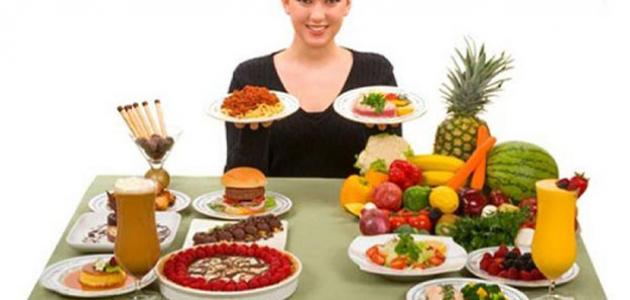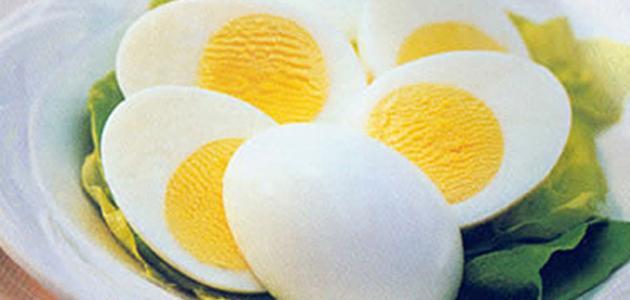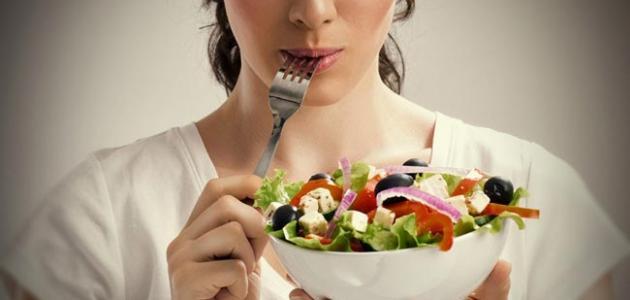colon
The colon is also known as the large intestine, and it is part of the digestive system. It is a long hollow tube located at the end of the digestive system in the place where stool is formed and stored. The colon may suffer from various disorders that affect its work. Such as: colonic polyps; They are additional tissues that grow in the colon, and they can become cancerous, or they may develop ulcerative colitis, diverticulitis, or irritable bowel syndrome. It is a condition that causes abdominal cramps, in addition to other symptoms, which we will focus on in this article. It should be noted that the treatments for irritable bowel diseases vary greatly. This is due to its dependence on the disease and its severity, and treatment may involve following a specific diet, using some medications, and in some cases surgery may be resorted to.
Colon diet
Diet can affect the symptoms of irritable bowel syndrome. Where many people with irritable bowel syndrome notice that symptoms worsen after eating a meal, and the severity of the disorder may vary from day to day. It should be mentioned that there are a variety of factors that affect the condition of irritable bowel syndrome and diet. such as exposure to stress, or hormonal changes that, if they intensify one day, are likely to lead to an increase in symptoms, and it should be noted that there is no evidence that digestion of food differs in people with irritable bowel syndrome compared to healthy people, so food does not cause infection. with this syndrome.
Read also:Water diet methodPeople with irritable bowel syndrome suffer from drastic changes in their bowel movements, some suffer from diarrhea, while others suffer from constipation, and cramps and abdominal pain can lead to difficulty in completing daily activities, and medical intervention is important in treating this syndrome, but some diets It may relieve symptoms, and some of these systems are explained below:
- High fiber diet: Where it is recommended that an adult eat 20 to 35 grams of fiber per day, and the benefit of fiber is that it increases the volume of stool, which facilitates the ability to excrete, and helps prevent constipation, and includes foods rich in fiber; Fruits, vegetables, and whole grains. It should be noted that some people may suffer from bloating as a result of eating fiber, and then it is recommended to focus only on soluble fiber found in fruits and vegetables instead of grains.
- Low fiber diet: While fiber may help patients with Irritable Bowel Syndrome, increasing its intake may worsen symptoms, especially if the patient suffers from diarrhea and gas. Therefore, water-soluble fiber sources can be consumed. Such as: apples, berries, carrots, and oats instead of insoluble fiber sources; Such as: whole grains, nuts, tomatoes, raisins, broccoli, and cabbage. Anti-diarrheal medications can be used XNUMX minutes before eating fiber to reduce annoying effects. This method is especially useful when eating in restaurants and on the go.
- Gluten free diet: (in English: Gluten); It is a protein found in grain products; Such as: bread and pasta, and it can harm the intestines of people who do not tolerate gluten, as some people who suffer from allergies or intolerance to gluten also suffer from irritable bowel syndrome, in such cases a gluten-free diet may reduce some symptoms .
- Elimination diet: Where this system focuses on avoiding certain foods for a long period of time up to 12 weeks, and certain foods suspected of exacerbating IBS symptoms are excluded, so the International Foundation for Functional Digestive Disorders (in English: IFFGD) recommends excluding four foods, which include; Coffee, chocolate, and nuts, in addition to insoluble fiber.
- Low fat diet: As foods rich in fat are considered low in fiber, which in turn may cause constipation, and fatty foods are particularly bad for people with mixed IBS. Which is characterized by a state of constipation and diarrhea together, so a low-fat diet benefits heart health, and may improve annoying bowel symptoms.
- Low FODMAP diet: (in English: FODMAPs); This FODMAP consists of eating carbohydrates that are difficult for the intestine to digest. This is because it leads to more water being pushed into the intestines, so people with irritable bowel syndrome are exposed to more gas, bloating, and diarrhea after eating these foods, so the temporary restriction or limitation of eating foods high in FODMAPs for a period ranging between 6-8 weeks may Improves symptoms of irritable bowel syndrome.
Diet plan for irritable bowel patients
Irritable bowel syndrome can range from diarrhea to constipation, and here we mention a one-day food plan for both cases:
Read also:How to suppress appetite- When you have diarrhea: Here are some foods that can be eaten during the day in case of diarrhea:
- breakfast; Have a bowl of oatmeal with cinnamon without sugar or artificial sweeteners.
- the lunch; Eat grilled fish or chicken with sweet potatoes baked without butter.
- dinner; Eat spinach salad with lean protein; Such as: grilled chicken prepared without oil.
- snack; Eat protein shakes or protein bars, with the need to read the food label to ensure that these products are free of high-fructose corn syrup or artificial sweeteners. This is because these ingredients alone can cause severe diarrhea.
- drinks; It is recommended to drink water.
- When you are constipated: Here are some foods that can be eaten during the day in the event of this condition:
- breakfast; Eat fresh peaches and peaches with mint tea or something with natural mint oil added.
- the lunch; Eat vegetable and fruit salads with lean protein; For example: fish with a little oil.
- dinner; Eat fruit, cooked vegetables, or salad with a little oil and vinegar, along with lean protein; Such as: fish, or chicken.
- drinks; such as water, tea, or coffee; which may act as a laxative.
Causes of irritable bowel syndrome
Although the exact cause of irritable bowel syndrome is still unknown, it is believed to be caused by a number of factors, including a change in gastrointestinal movement, abnormal nervous system signals, increased sensitivity to pain, and an inability to tolerate food, and we mention the following. Factors thought to cause irritable bowel syndrome:
Read also:What is liquid diet- Abnormal movements in the colon and small intestine.
- food allergy; It may be due to malabsorption of sugars or acids from food.
- Inflammation of the stomach and intestines; A viral or bacterial infection in the stomach and intestines may lead to Irritable Bowel Syndrome symptoms.
- psychological conditions; such as: anxiety or depression; It is common among people with Irritable Bowel Syndrome, although it has not been proven to be a direct cause of Irritable Bowel Syndrome.
- Imbalance of reproductive hormones or neurotransmitters in people with irritable bowel syndrome.
- Overgrowth of bacteria in the small intestine.
- heredity; Although its relationship to this syndrome has not been proven yet.
- gender and age; It has been shown that irritable bowel syndrome is more common among women, and in people under the age of 50.
Foods allowed for Irritable Bowel Syndrome
Here are some foods that are likely to have a positive effect on the health of the digestive system:
- Lean meat.
- eggs.
- fish rich in omega-3 acids; Ex: salmon.
- low-FODMAP vegetables; Such as: parsley, potatoes.
- fruits low in FODMAPs; Such as: bananas, kiwi.
- cereals; Such as: chia seeds, flax.
Foods prohibited for Irritable Bowel Syndrome patients
Foods that may worsen Irritable Bowel Syndrome symptoms include:
- Chocolate.
- Dairy products.
- beverages containing caffeine; Such as: coffee, tea, or soft drinks.
- sweets.
- High fat foods.









